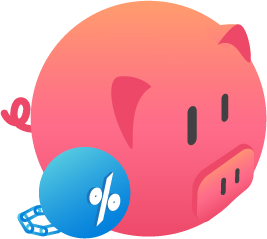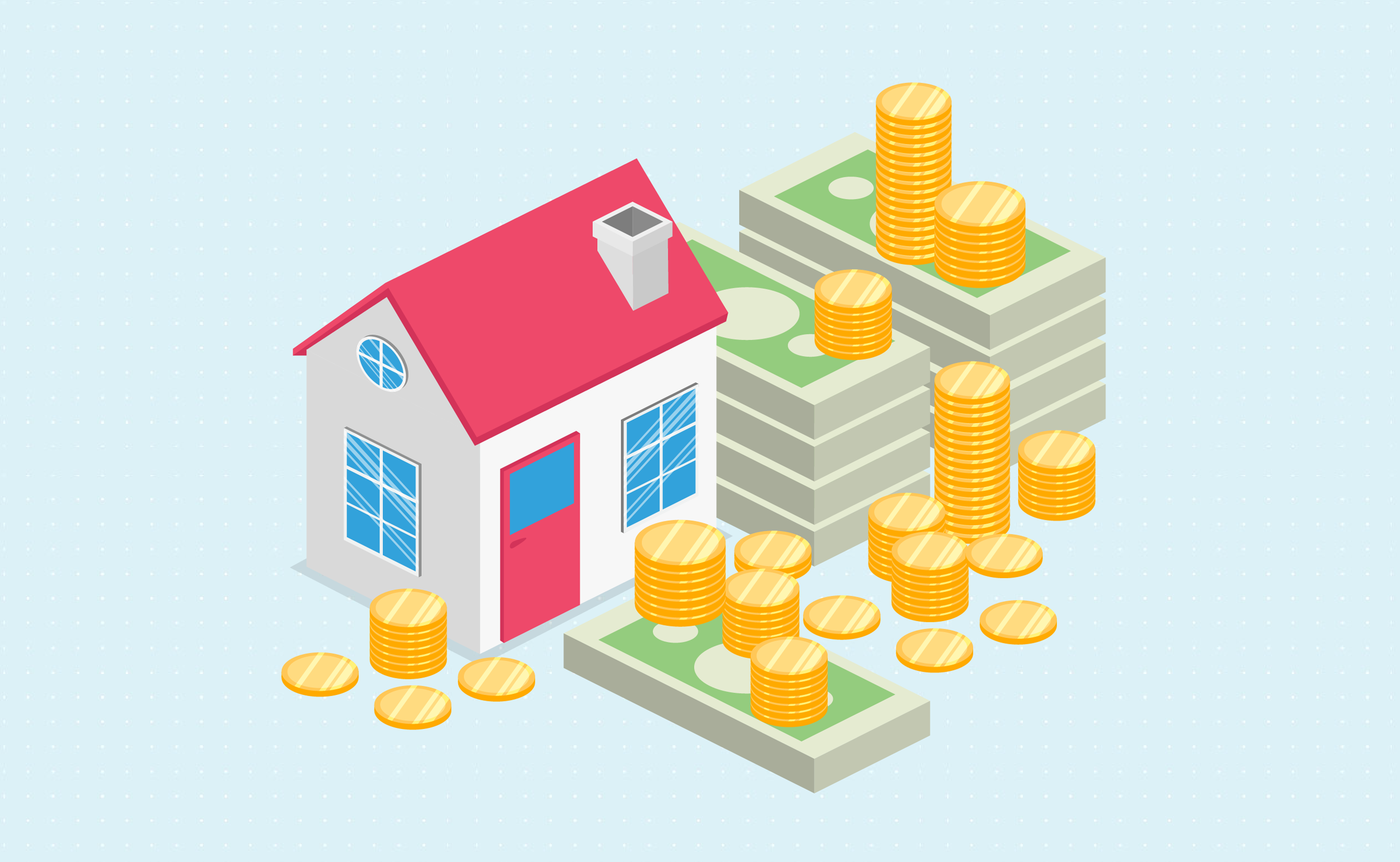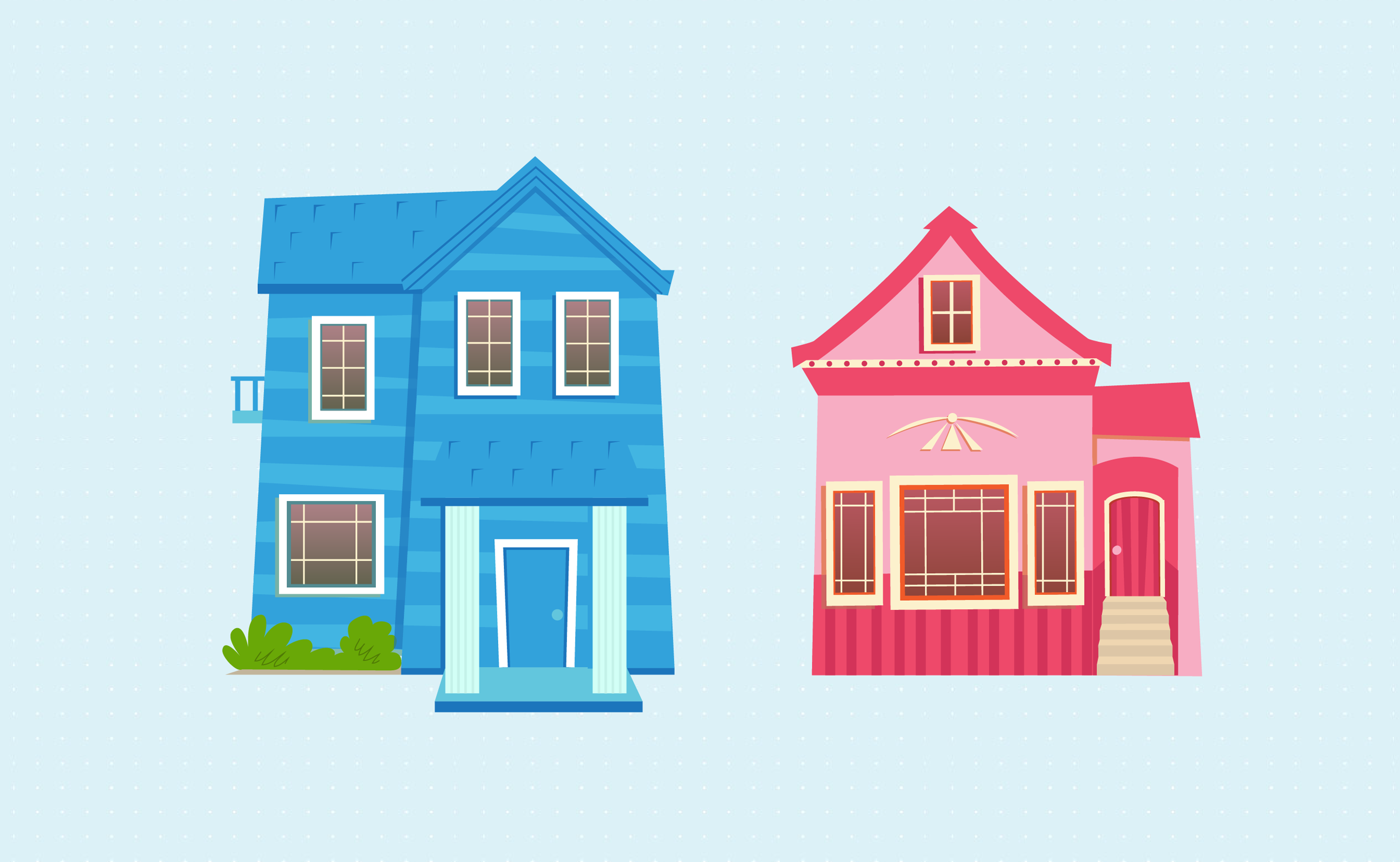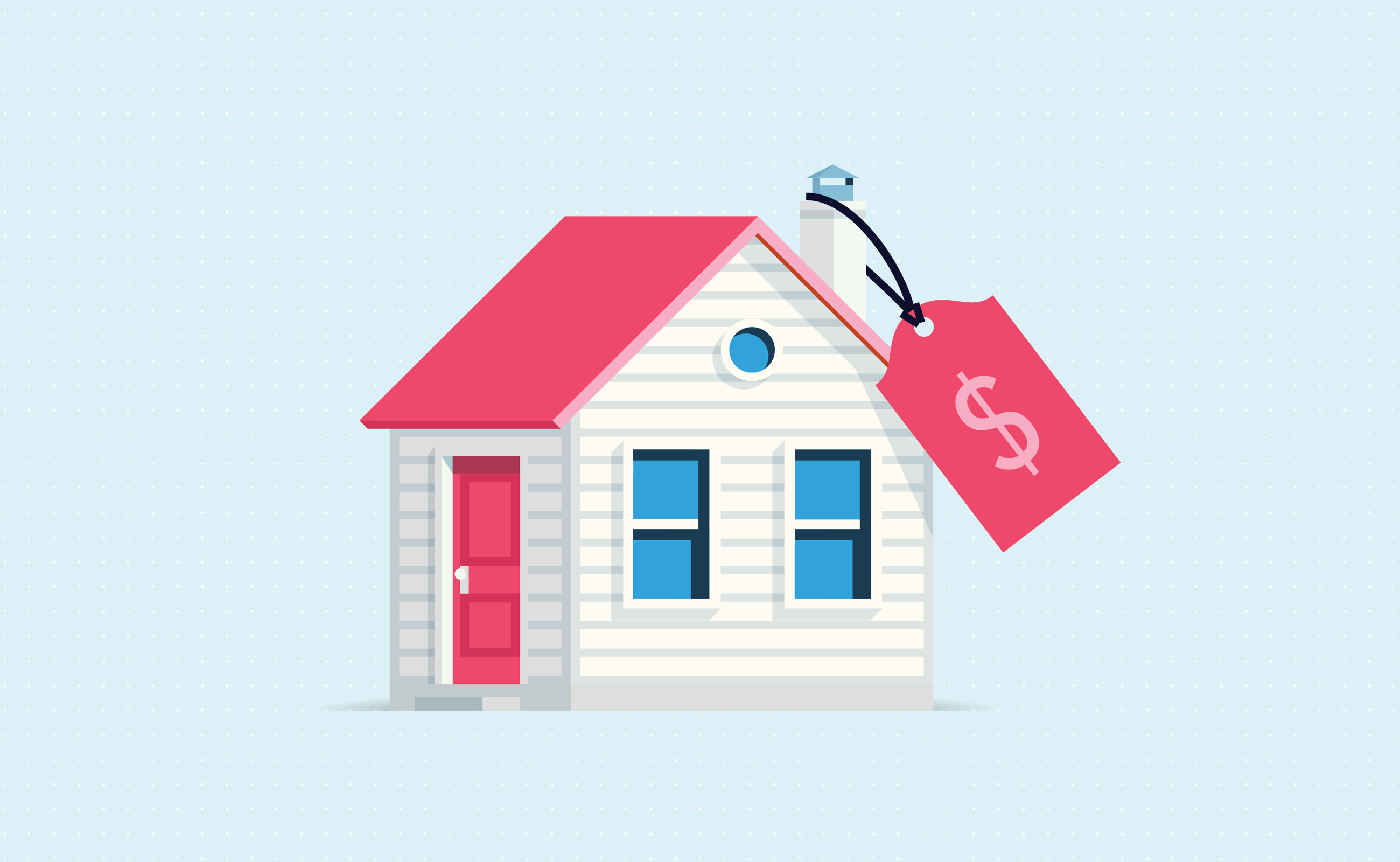Debt Investment
 Home Equity Debt Consolidation Calculator
Home Equity Debt Consolidation CalculatorUse this calculator to figure out how much you could save if you consolidated multiple debts into a single low-interest monthly payment backed by the equity in your home through a home equity loan or refinancing your mortgage & rolling other debts into your home.
Enter each of your debts below along with what category they are in, the interest rate they charge, your regularly monthly payments on them & any annual fees they charge. Once all debts have been entered in the top portion of the calculator you can adjust the terms of your new loan in the section below.
If you enter any mortgage payments in this calculator please be sure to enter the principal and interest portions of your monthly payments (do not include property taxes, insurance, HOA fees, or other expenses related to homeownership).
Authored by Jose Abuyuan on January 17, 2020
From student loans and credit card debts, all the way to costly mortgages, many Americans struggle to pay down their balances.
Dealing with debt has been a growing problem in the last decade. The New York Federal Reserve Bank states that consumer debt hit around $13.86 trillion in Q2 of 2019. This figure has been steadily rising, reaching its 20th consecutive increase in recent quarters.
How do you manage multiple accounts without missing payments? If you are asking the same question, you must be wondering if there is a better way to deal with debt and pay it off.
In this article, we'll talk about home equity and the advantage of using it to consolidate loans. More importantly, we'll discuss when it's a good idea to use this debt payment strategy.

Home equity is the portion of your house that you own. It consists of your down payment, how much of your loan principal you have repaid, and any home price appreciation.
For houses bought using a mortgage, lenders usually own most of the home's equity, which is used as collateral to secure the loan. Over time, the homebuyer's equity increases as they repay the loan or when the property's value appreciates.
How do we calculate home equity? It is the difference between the present value of your house minus the remaining loan balance.
As you pay off your mortgage you build significant home equity which can be used for other major expenses, including:

A home equity loan is a one-time lumpsum fund you take as a second mortgage on your house. You cash out all the money at once and pay it back in monthly installments. People take out lumpsum home equity loans for home improvement and maintenance projects. It is also used for consolidating large debts, such as multiple credit cards.
The approval process for a home equity loan can take anywhere between 14 to 28 days. Depending on your credit score and loan amount, interest rates usually fall between 3.79 to 11.99 percent.
Home equity loans are typically structured as fixed-rate loans with a 5 to 15-year term. This ensures predictable monthly bills, so you don't need to worry about sudden increases.
However, don't forget to factor in closing costs and other lending fees which can be high. Closing costs range between 2 to 5 percent of your loan. For instance, if you take out a $250,000 home equity loan with a 3 percent closing cost, you pay around $7,500.
What do closing costs include? It comes with an application fee, filing and preparation fees, and attorney fees. Also expect to pay fees for title search, appraisal, and proof of property taxes.

If you close a loan earlier, such as within three years, some lenders require penalty fees. Your payments will be reevaluated, and this will reflect in the final cost.
Home equity lines of credit enable you to withdraw cash as necessary, paying interest against what you borrow. It works a lot like a credit card, giving you access to available credit within a period of time. You can withdraw money as needed, only making payments on the amount you borrow.
The approval process for HELOC takes around 30 to 45 days. Depending on your credit score a, HELOC interest rates can fall between 3.49 to 21 percent.
In the first few years, you need to make small payments to maintain your credit line. Once this ‘draw period' ends, typically after 10 years, you must begin the repayment process. During this stage, borrowers must pay off their loan with significantly larger payments.
HELOCs often come with variable interest rates, which means it can rise or fall after 12 months. This suggests you might end up paying more than you initially thought. Think about this especially if you intend to keep your credit line for the next 15 to 20 years.
When your interest rate increases, it makes monthly payments higher. For instance, if your initial interest rate is 4.25 percent, it can go up to 5 percent after a year. So ask about the maximum interest rate to know if you can afford the loan. On the other hand, if the interest rate falls from 4.25 to 3.25 for several years, the overall cost can be lower compared to some home equity loans.
What about closing costs? HELOC closing costs fall between 2 to 5 percent of your loan. Depending on your lender's terms, it can cost as low as $100 or even as high as $2,000. Many lenders waive closing costs if your line of credit is open for a long time, such as over 10 years. Ask your lender to know their arrangements for closing costs.
Home equity loans are easier to obtain largely because it is secured by the property. Interest rates on these loans are also much lower compared to unsecured personal loans or credit cards.
Once you decide on a home equity loan, make sure to assess if it's the best move. Property value fluctuates, which means it can go up or down any time.
To be safe, avoid borrowing too much money from your home equity. For instance, if you need a fair amount for home renovation, leaving at least 20 to 30 percent equity might suffice. If economic conditions turn south, this can help you avoid further debt.

Before the passage of the Tax Cuts and Jobs Act of 2017 most second mortgage debt interest was tax deductible. The TCJA lowered the total mortgage interest deduction while also limiting the second mortgage interest deduction to loans where the funds were explicitly used to substantially improve or expand upon the dwelling. Be sure to keep your receipts if you plan on taking this deduction.
Consolidating loans via home equity is a viable option if you are committed to paying your debts. But while it can help reduce high rates and large balances, it should not be your first option. Ask yourself: Will this loan truly address my debt problem?
When you consolidate debt with home equity, you have considerably lower interest rates. They are also much more affordable than credit card rates that are around 15 to 20 percent. You can take advantage of this to save funds and pay down your debts a lot faster.
You can use our calculator to estimate home equity debt consolidation.
To give you an example, the table below shows the difference between paying 3 credit card debts versus consolidating your debts with a home equity loan.
| Details | Credit Card 1 | Credit Card 2 | Credit Card 3 | Three Cards | Home Equity Loan |
|---|---|---|---|---|---|
| Balance | $20,500 | $15,800 | $13,700 | $50,000 | $50,000 |
| Interest rate | 15% | 16% | 20% | 6% | |
| Monthly payment | $820 | $532 | $550 | Total: $1,902 | $555 |
| Est. pay off time | 31 months | 39 months | 33 months | Loan term: 10-year loan |
Based on the example, you'll pay a total of $1,902 monthly on credit card bills. However, if you choose a consolidated home equity loan, you can lower you interest rate to 6 percent. Throughout the 10-year term, you only pay $555 every month. That's a savings of $1,347.
When choosing a lender, be informed by researching the upfront closing costs. You also want to know how these extra fees will affect your finances. There are lenders who might say they do not come with lender fees. However, they may charge you penalty fees if you happen to close the account earlier than the agreed loan term. If you intend to pay down your debt sooner, make sure to ask about penalty fees.
On the other hand, if you still depend heavily on your credit card without preparing a budget, you are likely to incur more debt. This debt payment option is also not advisable if you do not have job security. Make sure you have a steady source of income.
Consider the following pros and cons before you decide:
| Pros | Cons |
|---|---|
| You only need to make one monthly payment | If your home's value decreases, you might have more debt than it's worth |
| Since it is secured with collateral, it has lower interest rates | Risk of foreclosure – you can lose your property |
| You save more on total interest | It takes a long time – repayment can be more than 10 years |
| You can estimate the payment time | Dealing with closing costs and lending fees |
| It's easier to qualify | Spending on home appraisal fees |
Reflect on possible scenarios. If you repeatedly miss payments, your bank might seize or sell your home. You must have a realistic payment plan in place to make sure you can afford the costs.

People who have fair credit history generally have more debt consolidation alternatives. You likely do not need to consolidate your debts with home equity if you get approved by a private debt consolidation creditor.
However, if you have exhausted all other methods, consolidating with home equity is a good recourse for you. You should only tap this resource if you have no other means to cope with debt.
There are plenty of other ways to manage loan payments without offering your home as collateral. Try out other debt repayment methods first before considering this option.
You should seek help from a financial adviser if you think you're at risk of bankruptcy. This also applies if you're close to defaulting on some of your debts. If this is the case, do not consolidate your debts with home equity.
Using this approach makes your home highly vulnerable to foreclosure. If you fail to keep up with your monthly mortgage payments, your lender will seize your home.
Filing for bankruptcy is your last resort if you are struggling to repay debt. It temporarily relieves you of debt obligations, giving you the chance to recover your financial state.
However, bankruptcy shows up in your credit report for as long as 10 years. This can make it harder to qualify for new loans.
Debts included in your bankruptcy should reflect as ‘discharged' within the next two months. You have the opportunity to build your credit and gradually improve your credit score.
Home equity is not the only way you can manage several debts. Consider the following options. These strategies do not require you to use your property as collateral or borrow against home equity.
Apply for a lower interest rate debt consolidation loan. Private creditors like banks, credit unions, and debt consolidation agencies offer this service. In this method, you are basically transferring your debts to a new loan and lender.
If you are having a hard time paying four high-interest rate credit cards, this might be a better option for you. That way, your monthly payments will be lower. But take note: the lower rate would largely depend on your credit history.
You can get unsecured personal loans with fixed interest rates. When you choose this consolidation strategy, it's also significantly lower than credit card rates. Once a lender approves you, you can use the money at once to pay out high interest rate accounts.
However, getting a personal loan is more beneficial if you have high income. It can be risky if you do not have a stable source of large funds.
Many credit card companies provide balance transfer credit cards. These cards come with introductory 0 percent interest rates for at least a year.
You can make the most out of this offer by transferring your high interest rate balances. Use the time to pay off the balances and make extra payments on your loans. However, check when the 0 percent interest rate expires. If you haven't paid off your debts by then, you might have extremely high annual percentage rates.
Consolidating debt with home equity can work if you commit to consistent payments. There is a lot at stake when you put your family home as collateral for a loan. To counteract this risk, be sure to gather enough income to pay out your balance.
Moreover, make the necessary lifestyle adjustments to cut down on your spending. The only way you can recover from debt is if you stop creating more debt.
If, for any reason, you think this is too big of a risk, choose other options. What matters is you're actively trying to live a debt-free life.
For more information on how to conquer your debts, visit this page.
Jose Abuyuan is a web content writer, fictionist, and digital artist hailing from Las Piñas City. He is a graduate of Communication and Media Studies at San Beda College Alabang, who took his internship in the weekly news magazine the Philippines Graphic. He has authored works professionally for over a decade.